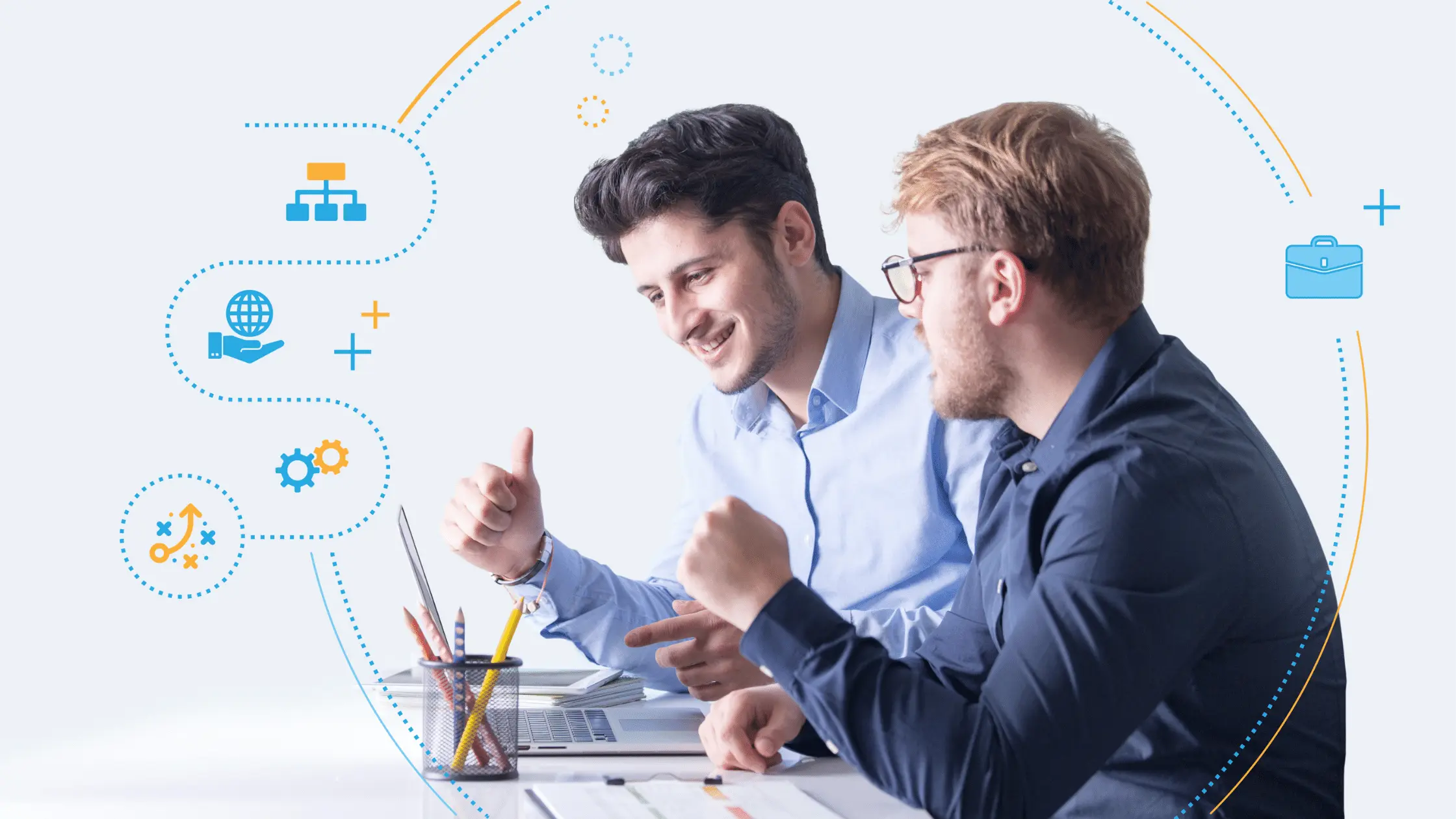Choosing a career path is one of the most significant decisions you'll ever make in your life. The debate between government jobs and private jobs has been a longstanding one, with each path offering its own set of advantages and disadvantages. While some may have a clear preference, for many, the choice can be daunting. In this blog, we will decode the complexities of government jobs versus private jobs, helping you make an informed decision about your career.
The Battle of Stability vs. Opportunity
Government Jobs: The Beacon of Stability
Government jobs are often seen as the epitome of job security. They provide a fixed income, regular pay hikes, and a range of benefits, including health insurance and retirement plans. In uncertain economic times, a government job offers a sense of stability that can be hard to find in the private sector. Moreover, the work-life balance in most government jobs tends to be healthier, allowing employees to have a fulfilling personal life.
The recruitment process for government jobs can be highly competitive, often involving rigorous exams, interviews, and a prolonged selection process. However, once you secure a government job, you usually have a secure position for life, barring any major misconduct.
Private Jobs: The Abode of Opportunity
On the other hand, the private sector is all about opportunity. Here, the sky's the limit when it comes to earning potential. Salaries in private companies often surpass those in the public sector, and the chance for rapid advancement is higher. Additionally, private companies tend to be more flexible and dynamic, allowing you to adapt and grow with the changing business landscape.
However, this opportunity comes at a price. The private sector can be highly competitive and demanding, with job security being less certain. Companies may restructure or downsize, leading to job insecurity. It's not uncommon for private sector employees to switch jobs more frequently, searching for better opportunities.
The Salary Conundrum: Who Earns More?
The perennial question in the job market is whether government employees earn more than their private sector counterparts. The answer is not straightforward, as it depends on various factors, including the job role, experience, and location. However, we can examine some key points:
Government Salaries
Government jobs typically have a structured pay scale based on position and seniority. While they may start with lower salaries, the regular pay increments and allowances can lead to a comfortable income over time. The benefits, such as healthcare and pension plans, further sweeten the deal.
Private Sector Salaries
Private sector salaries can vary significantly, with some industries and roles offering lucrative packages. Experienced professionals in the private sector often earn more than their government counterparts. However, private sector jobs may lack the same level of job security and benefits.
Job Satisfaction: Balancing Passion and Security
Job satisfaction is not solely about salary; it also depends on whether you enjoy what you do. Your passion and interest in a particular field can greatly influence your job satisfaction. Both government and private sector jobs offer opportunities for fulfilling careers, but they differ in various ways.

Government Job Satisfaction
Government jobs often involve working on projects and programs that benefit society. If you're passionate about public service and want to contribute to the greater good, a government job can be highly satisfying. Moreover, the stability and job security can provide a sense of contentment.
Private Job Satisfaction
Private sector jobs are diverse, with opportunities in industries ranging from technology and finance to entertainment and hospitality. If you have a passion for entrepreneurship, innovation, or want to work in a specific niche, the private sector may be the ideal choice. The dynamic nature of private companies can lead to exciting, fast-paced careers.
Work-Life Balance: Finding the Sweet Spot
Maintaining a healthy work-life balance is essential for overall well-being. The demands of your job can significantly impact your personal life. Here's how government and private sector jobs compare in this regard:
Government Jobs and Work-Life Balance
Government jobs typically offer a standard 9-to-5 work schedule with weekends and holidays off. They often prioritize a balanced work-life environment, allowing employees to have time for family, hobbies, and personal pursuits. This is especially appealing for individuals with families or those who value leisure time.
Private Jobs and Work-Life Balance
The work hours in the private sector can be more variable. While some companies promote work-life balance and offer flexible schedules, others may require long hours, especially in competitive industries. It's essential to research potential employers and assess their commitment to work-life balance if this is a significant factor for you.
Career Growth and Advancement: Climbing the Ladder
Advancement opportunities can be a crucial aspect of your career choice. Let's examine how government and private sector jobs compare in terms of career progression:
Government Job Advancement
Government job advancement is often based on seniority and performance. It can be slower compared to the private sector, and promotions may require specific qualifications or competitive exams. However, a government career can be stable and provide a sense of job security.
Private Job Advancement
The private sector offers a faster pace of career progression. Performance and results are key factors in climbing the corporate ladder. Hard work and dedication can lead to rapid promotions and increased responsibilities. If you're ambitious and seek a fast-track career, the private sector may be your best bet.
Job Security: The Elephant in the Room

Job security is a significant concern for many job seekers. It's important to understand the stability of your chosen career path:
Government Job Security
Government jobs are known for their job security. Once you secure a government position, it is often challenging to be terminated, barring severe misconduct. Layoffs and downsizing are rare, and you can expect a stable income throughout your career.
Private Job Security
Private sector job security can be more precarious. Companies may restructure, merge, or downsize, leading to job insecurity. It's common for private sector employees to switch jobs frequently in search of better opportunities. However, in dynamic industries, high demand for specific skills can provide job security for individuals with valuable expertise.
Job Benefits: Beyond the Paycheck
Job benefits are an essential consideration, as they contribute to your overall compensation package:
Government Job Benefits
Government jobs often come with a comprehensive benefits package, including health insurance, retirement plans, paid leave, and other perks. These benefits can significantly enhance your overall compensation.
Private Job Benefits
Private sector benefits can vary widely. Larger companies may offer competitive benefit packages, while smaller businesses may have more modest offerings. It's essential to consider the full compensation package, including health benefits, retirement plans, and other perks when evaluating private sector opportunities.
Choosing the Right Career Path
The decision between government and private sector jobs ultimately depends on your personal preferences, career goals, and values. Here are some key factors to consider:
Stability vs. Opportunity:
Determine how much risk you're comfortable with and whether job security or rapid advancement is more important to you.
Salary and Compensation:
Evaluate your financial needs and aspirations and research the earning potential in your chosen field.
Job Satisfaction:
Consider your passions and interests. What kind of work aligns with your values and fulfills you professionally?
Work-Life Balance:
Reflect on your personal life and family commitments. How important is it for you to have time for leisure and personal pursuits?
Career Growth:
Assess your ambitions and willingness to work hard for rapid career progression.
Job Security:
Think about your risk tolerance and how you handle uncertainty in the job market.
Job Benefits:
Analyze the overall compensation package, including benefits and perks.
Remember that your career path is not set in stone. You can transition between government and private sector jobs, or even explore entrepreneurship if you have the drive and determination. It's essential to keep evaluating your choices and adapting to your evolving priorities and circumstances.
In Conclusion
The decision between government and private jobs is a complex one, with no one-size-fits-all answer. Your choice should align with your values, goals, and lifestyle preferences. Both government and private sector jobs offer unique advantages and challenges, and the right career path for you depends on your individual circumstances and aspirations. Take the time to self-reflect, research, and consult with mentors or career advisors to make an informed decision that will shape your future.
_DSpOq.png)


Leave a Comment
To post comment, please